영어로 만나는 The Little Prince
Sesshou's Life/Reading... 2008. 12. 19. 17:17 |구글 총 동원해서 오만 외국 웹에서 싸그리 발췌해 보았었다.
스토리를 순서대로 적어본다.
외국 사이트 그림이 늦게 뜨는건 내 탓이 아니다.
아무튼지간... 재주껏 영어 공부들 하시라.
물론 일부만 발췌한 것이지, 어린 왕자 내용 모두는 아님을 밝힌다.
===============================================================================
Antoine de Saint-Exupéry
The Little Prince
Illustrated by authorTo Léon Werth
I ask the indulgence of the children who may read this book for
dedicating it to a grown-up. I have a serious
reason: he is the best friend I have in the world. I have
another reason: this grown-up understands
everything, even books about children. I have a third
reason: he lives in France where he is hungry and
cold. He needs cheering up. If all these reasons are
not enough, I will dedicate the book to the child from
whom this grown-up grew. All grown-ups were once
children-- although few of them remember it.
And so I correct my dedication :
To Léon Werth
when he was a little boy
I.Here is a copy of the drawing.
 In the book it said: "Boa constrictors swallow their prey whole, without chewing it. After that they are not able to move, and they sleep through the six months that they need for digestion."
 I showed my masterpiece to the grown-ups, and asked them whether the drawing frightened them.
 The grown-ups' response, this time, was to advise me to lay aside my drawings of boa constrictors, whether from the inside or the outside, and devote myself instead to geography, history, arithmetic and grammar. That is why, at the age of six, I gave up what might have been a magnificent career as a painter. I had been disheartened by the failure of my Drawing Number One and my Drawing Number Two. Grown-ups never understand anything by themselves, and it is tiresome for children to be always
|
II.The first night, then, I went to sleep on the sand, a thousand miles from any human habitation. I was more isolated than a shipwrecked sailor on a raft in the middle of the ocean. Thus you can imagine my amazement, at sunrise, when I was awakened by an odd little voice. It said: "If you please-- draw me a sheep!" "What!" "Draw me a sheep!" I jumped to my feet, completely thunderstruck. I blinked my eyes hard. I looked carefully all around me. And I saw a most extraordinary small person, who stood there examining me with great seriousness. Here you may see the best potrait that, later, I was able to make of him. But my drawing is certainly very much less charming than its model.
 That, however, is not my fault. The grown-ups discouraged me in my painter's career when I was six years old, and I never learned to draw anything, except boas from the outside and boas from the inside.
|


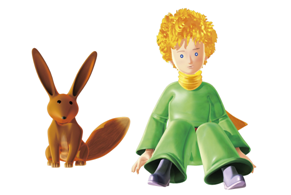
III.It took me a long time to learn where he came from. The little prince, who asked me so many questions, never seemed to hear the ones I asked him. It was from words dropped by chance that, little by little, everything was revealed to me. It is an airplane. It is my airplane." from another planet?" reply. He tossed his head gently, without taking his eyes from my plane: on that you can't have come from very far away..." I said, everything is so small!" |
IV.But that did not really surprise me much. I knew very well that in addition to the great planets-- such as the Earth, Jupiter, Mars, Venus-- to which we have given names, there are also hundreds of others, some of which are so small that one has a hard t ime seeing them through the telescope. When an astronomer discovers one of these he does not give it a name, but only a number. He might call it, for example, "Asteroid 325." I have serious reason to believe that the planet from which the little prince came is the asteroid known as B-612. This asteroid has only once been seen through the telescope. That was by a Turkish astronomer, in 1909. 
|
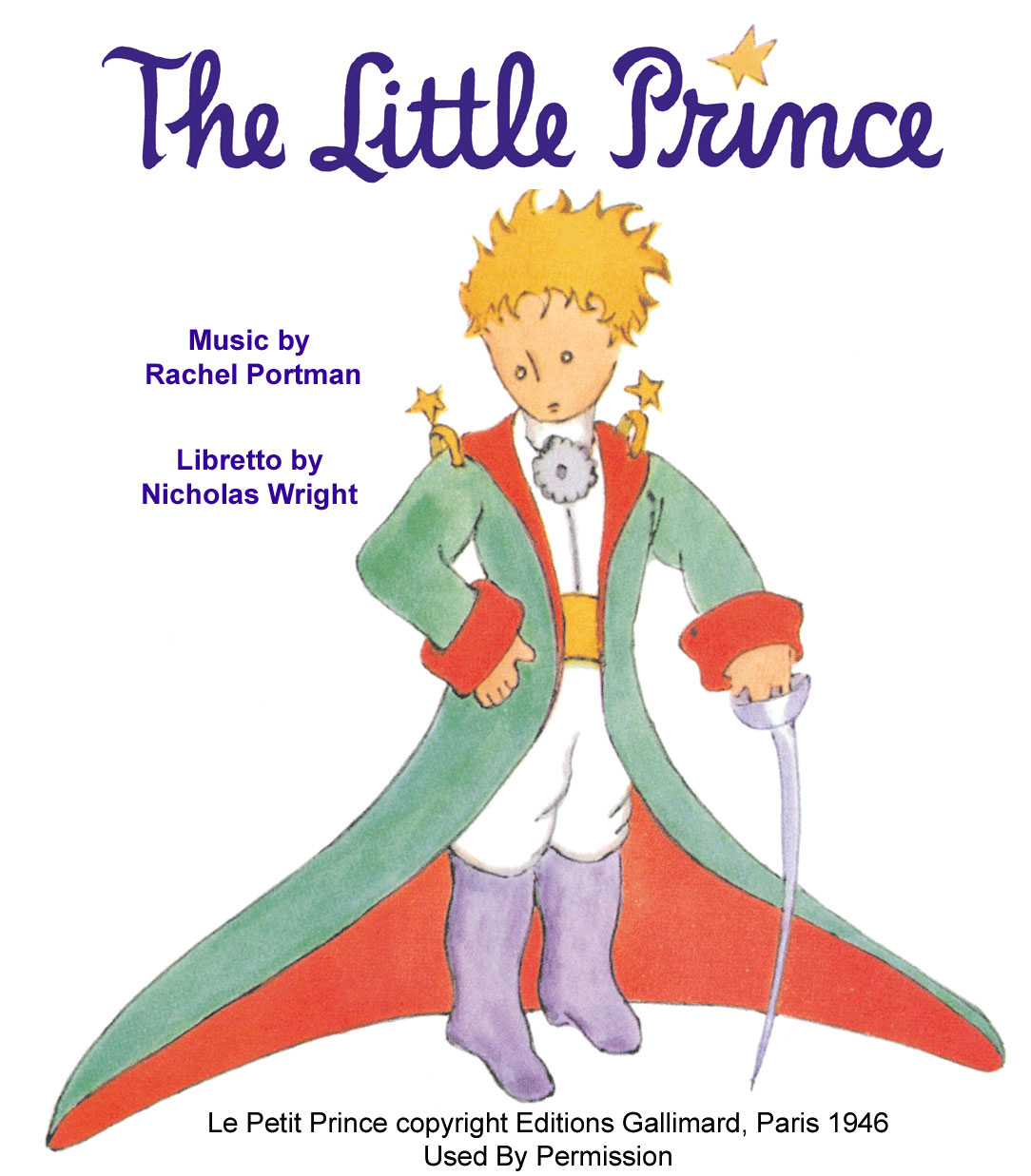
V.This time, once more, I had the sheep to thank for it. For the little prince asked me abruptly-- as if seized by a grave doubt-- "It is true, isn't it, that sheep eat little bushes?" I did not understand why it was so important that sheep should eat little bushes. But the little prince added: "Then it follows that they also eat baobabs?" I pointed out to the little prince that baobabs were not little bushes, but, on the contrary, trees as big as castles; and that even if he took a whole herd of elephants away with him, the herd would not eat up one single baobab.  The idea of the herd of elephants made the little prince laugh. The idea of the herd of elephants made the little prince laugh."We would have to put them one on top of the other." he said. But he made a wise comment: "Before they grow so big, the baobabs start out by being little." "That is strictly correct," I said. "But why do you want the sheep to eat the little baobabs?" He answered me at once, "Oh, come, come!", as if he were speaking of something that was self-evident. And I was obliged to make a great mental effort to solve this problem, without any assistance. Indeed, as I learned, there were on the planet where the little prince lived-- as on all planets-- good plants and bad plants. In consequence, there were good seeds from good plants, and bad seeds from bad plants. But seeds are invisible. They sleep deep in the heart of the earth's darkness, until some one among them is seized with the desire to awaken. Then this little seed will stretch itself and begin-- timidly at first-- to push a charming little sprig inoffensively upward toward the sun. If it is only a sprout of radish or the sprig of a rose-bush, one would let it grow wherever it might wish. But when it is a bad plant, one must destroy it as soon as possible, the very first instant that one recognizes it. Now there were some terrible seeds on the planet that was the home of the little prince; and these were the seeds of the baobab. The soil of that planet was infested with them. A baobab is something you will never, never be able to get rid of if you attend to it too late. It spreads over the entire planet. It bores clear through it with its roots. And if the planet is too small, and the baobabs are too many, they split it in pieces...  "It is a question of discipline." the little prince said to me later on. "When you've finished your own toilet in the morning, then it is time to attend to the toilet of your planet, just so, with the greatest care. You must see to it that you pull up regularly all the baobabs, at the very first moment when they can be distinguished from the rosebushes which they resemble so closely in their earliest youth. It is very tedious work," the little prince added, "But very easy." |
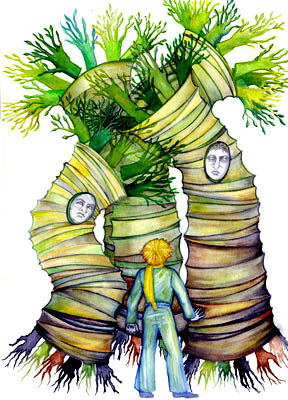
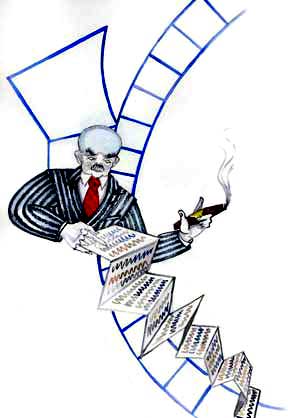
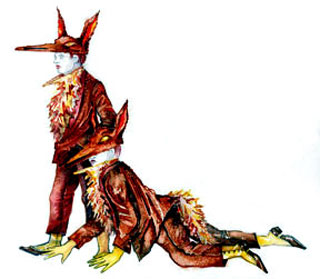
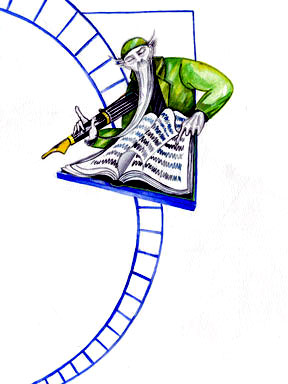
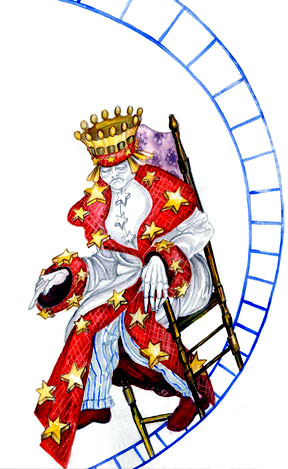
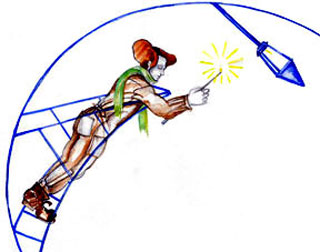
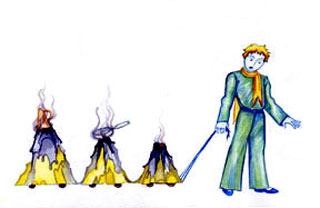
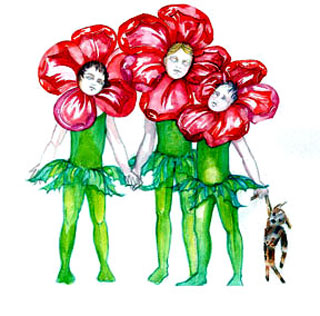
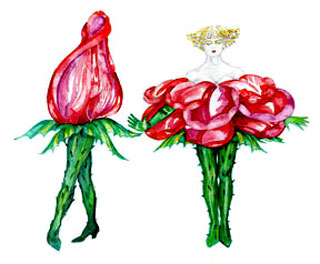
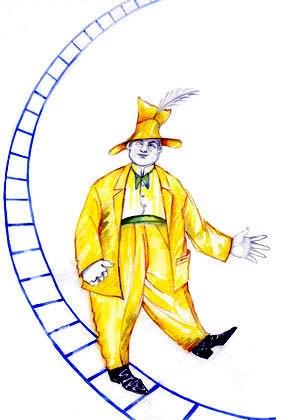
'Sesshou's Life > Reading...' 카테고리의 다른 글
| [나름대로 의학 정보] 맥주는 정말 몸 속의 돌을 부시는걸까? (0) | 2018.01.18 |
|---|---|
| 난소의 종양, 경계성과 점액성 (0) | 2008.12.22 |
| 스타들의 사랑 어록 (0) | 2008.12.19 |
| 나 자신을 돌보는 감정 관리 7계명 (0) | 2008.12.19 |
| 폰더씨의 위대한 하루에 나온 7가지 결심 (0) | 2008.12.19 |



 So then I made a drawing. He looked at it carefully, then he said:
So then I made a drawing. He looked at it carefully, then he said:  "This one is too old. I want a sheep that will live a long time."
"This one is too old. I want a sheep that will live a long time."  "This is only his box. The sheep you asked for is inside."
"This is only his box. The sheep you asked for is inside."  "Do you come
"Do you come 

 And one day he said to me: "You ought to make a beautiful drawing, so that the children where you live can see exactly how all this is. That would be very useful to them if they were to travel some day. Sometimes," he added, "there is no harm in putting off a piece of work until another day. But when it is a matter of baobabs, that always means a catastrophe. I knew a planet that was inhabited by a lazy man. He neglected three little bushes..."
And one day he said to me: "You ought to make a beautiful drawing, so that the children where you live can see exactly how all this is. That would be very useful to them if they were to travel some day. Sometimes," he added, "there is no harm in putting off a piece of work until another day. But when it is a matter of baobabs, that always means a catastrophe. I knew a planet that was inhabited by a lazy man. He neglected three little bushes..."